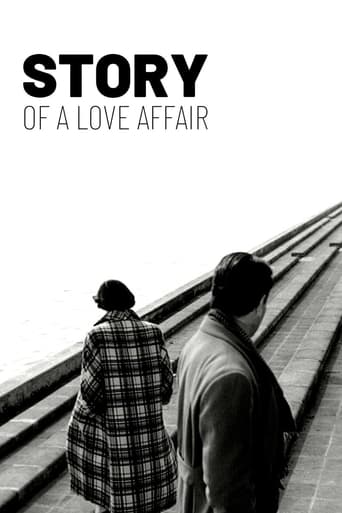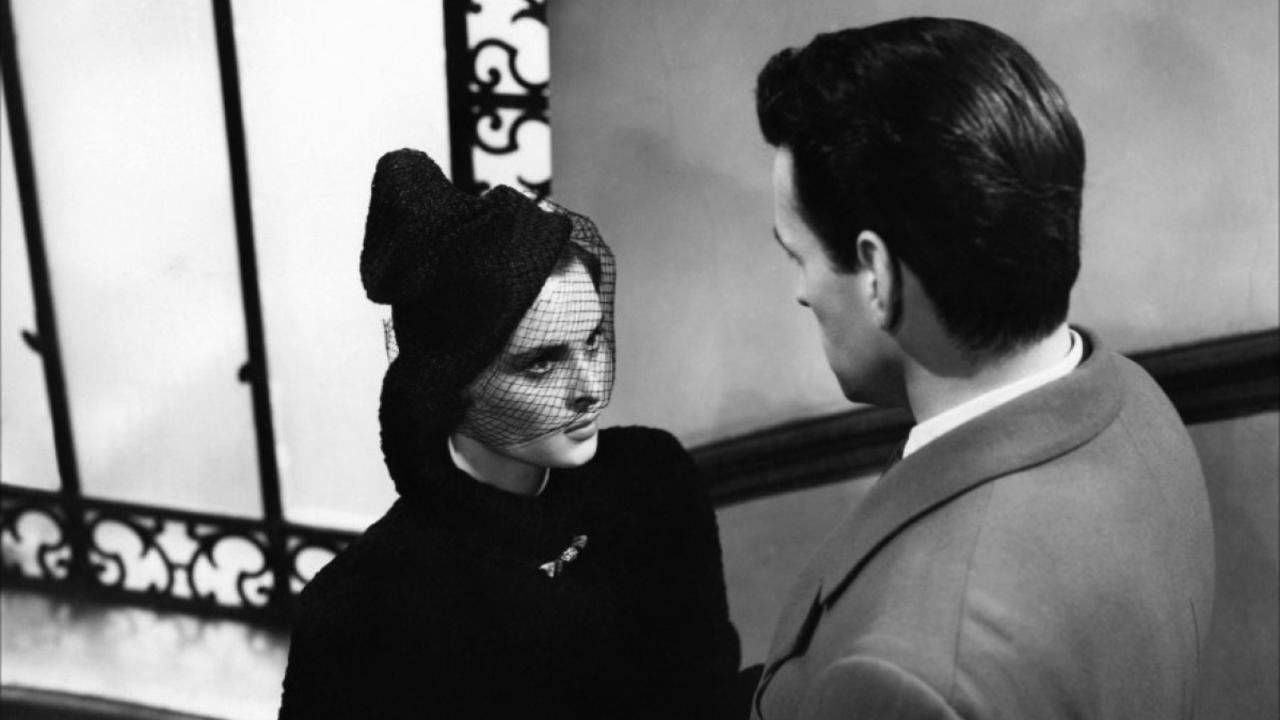dlee2012
This early work by Antonioni in many ways prefigures the post-modern movement. It defies genre expectations by blending crime and romance story conventions and presents to the audience vacuous characters portrayed by thespians deliberately chosen for their lack of acting ability. Added to this is a paper-thin plot, filled with meandering scenes. Unfortunately, it is at that point that comparisons with the (purportedly) "great" films of the post-modern movement, such as Blade Runner, end.There is nothing engaging here and the film is ultimately as shallow as the character of Paola. Whilst her vacuous, empty life is well represented by such scenes as the auction of the gown, there is little insight into why she is the way she is. Also, like many post-modern works, there are no solutions. The character does not grow or develop. Whilst in Blade Runner, the commodified Replicants are finally revealed to be more humane than the humans but here there is no answer to the world's post-War malaise. The social critique is also muted and often misses the mark. Paolo is disconnected from the world around her and self-absorbed but this limits the film's opportunity to critique the society that produced her.The deliberately disconnected plot and dialogue only serve to confuse, contributing nothing artistically. The vacuousness of the film mirrors a vacuous West adrift after the war but adds no commentary on that society.In summary, this film will only be of interest to admirers of Antonioni who want to see him develop his style. Artistically, the film is a failure. As post-modernism grows stale, so too do films like these. What would have been seen as a somewhat ambitious work in 1950 does not even have that sense of freshness in its favour now.
lasttimeisaw
Billed as Antonioni's very first feature-length debut, and started his auteurism career, CRONACA DI UN AMORE revolves around a noir story about a female fatale conspiring a scheme to kill her rich husband with her ex-lover. The film is a mediocre attempt for Antonioni to ooze his budding genius, ending with a patchy denouement.The narrative goes smoothly but lingers too long with a third-party interference with a wooden detective (Gino Rossi, also the general manager of the film), then this sub-plot submerges into a void most of the subsequent running time, only resurfaces sporadically in-between, also a guilty-ridden murder case turns out just a futile storyline adornment. The cast, a new-comer Lucia Bosé (whom I saw in Prague several weeks ago in an exhibition opening, I wish I had taken some photos, being an octogenarian, her dyed blue hair is drolly avant-garde) was 19 years old at year, while her rawness to impersonate an experienced temptress was feeble enough to allow the outfits eclipse her character, so as well the late Massimo Girotti, whose dashing wind coat is never outmoded even after 60 years. Emotionally poignant is a typical kick from this Italian film (sometimes it is even saccharine, but it could be the Italian style which rooted in the blood), at the age of 38, Antonioni had already acquired a great sense of enact an environmental dramatism, while dialogues are over- exploited in this one, which is too tedious and old-fashioned to be appreciated by people around my age, personally I prefer a more subtle approach, like CASABLANCA (1942) or THE BIG SLEEP (1946), yes Humphrey Bogart's distinctive charisma is the killing!
DICK STEEL
The very first feature film of Michelangelo Antonioni, Story of a Love Affair as introduced by Lorenzo Codelli, was a film that dealt with the metaphysics, and had very little neo-realist elements which was a departure from what one would come to expect from a filmmaker whose documentaries were neo-realist. Watching it for the first time, I thought it would make a wonderful thriller/crime-mystery involving two lovers, and I suppose in the hands of Hollywood, we would get just that.But this is not Hollywood we're talking about, so again I get to throw all standard notions I was weaned on out of the window. As I was warned by a friend, I would be in for a rough ride because whatever structure of story-telling I was familiar with was going to be challenged, and strangely enough, I am beginning to find this challenge quite liberating, like the hitting onto a goldmine or an oilfield, and just raking in the sights and sounds from how beautiful a black and white movie could be, in terms of story, and characters.However, the characters need not be goody-two-shoes, or perfectly looking beings with zilch problems that they couldn't take care of within 2 hours. There are some serious and complex issues that the leads here have to grapple with, and together with an audience, we try and probe, and discover for ourselves just what those are, though naturally we aren't given all the answers on a sliver platter, and have to work hard at it, sometimes even utilizing some precious moments to breathe, digest, and compute, only being able to scratch the surface.Whatever the story or mystery is, it never really got addressed, not directly anyway. But story aside, I was really intrigued by the lead characters. We have a beautiful married woman Paola Fontana (played by Lucia Bose whom we'll see later in another Antonioni movie, and at one time the reigning Miss Italy) who seem to have the best of what luxuries life can offer, but is stuck in a loveless marriage to a rich man Enrico (Ferdinando Sarmi). We're told that in her youth, she was a head turner, and almost always changes her boyfriends, each being the alpha-male type.Surprisingly, her lover whom she maintains contact with, Guido (Massimo Girotti) is anything but an alpha-male type. In fact, I would call him a loser in the classic sense of the word. No real job and penniless, he has some magnetic qualities to be be able to mesmerize Paola into trysts in cheap motel rooms. Meeting on the sly, we see how a high society woman have to dodge around from being discovered, and setting up alibis just to meet Guido, and we soon learn how wicked a woman she can be, for coming up with plans for crime to be committed to get things done her way. Which brings us back to the original thought of how she was involved in a more heinous crime / accident, where she could well be the chief manipulator then made to be seen as the victim.The main crime thread that got weaved into the story, was one involving a certain unseen Ms Giovanna, whose demise was linked to the two lovers. We never really learned what exactly happened, and Antonioni makes us work in order to try and piece clues and accounts together. And the probing of this mystery by a private investigator serves as a catalyst to the rest of the story, where we first see our lovers meet after a long while, but instead of enjoying each other's embrace, seem a lot more concerned with the PI's probe, as if afraid that it'll uncover hidden skeletons in their closets.Story of a Love Affair becomes an examination into these 2 characters, and interesting enough, to dwell on the problems that they face, in a somewhat lose-lose situation throughout their relationship. The first was when Giovanna served to be in the way of their coming together, being an in-between, and when that's settled, there's the other more pressing issue of whether they can elope successfully, where pragmatism takes over romanticism with Guido knowing for sure that he has no money, and little means to support both of them, especially the lifestyle that Paola currently enjoys.Definitely deserves a second viewing to try and develop my thoughts on it further! And to enjoy the beautiful score all over again too!
Polaris_DiB
Antonioni's first fictional film and a picture of post-war anxiety, "Story of a Love Affair" is the ironic tale of lovers who meet due to a husband's suspicion, their dramatic history, and the decisions they make to try to stay together. It takes on class issues, post-war malaise, and struggles against fate... to name just a few things. In 98 short minutes, it's filled to the brim with pathos and intrigue, deceit and passion, and fear and doubt.It's a lot to take on for a "first" film, but Antonioni handles himself well, helped along very well by the actors. This is the first film of Antonioni's I've seen where the male character seems to have as much presence as the female. One can see some of Antonioni's later conceits beginning to develop, such as his eye for architecture and landscape, his dramatic sense of "the gaze", and his opinion that "Eros is sick."This film also probably has more dialog than any other feature Antonioni has ever made. It is, in fact, so full of dialog that it's somewhat exhausting, though the dialog itself is very well written and poignant. The exhaustive quality of it actually helps the viewer relate to the ennui and entrapment felt by Paola and Guido, but it does weigh the movie down. Still, there are enough moments of silent contemplation and visual narration to release the movie from that tension and give the story a strong flow.It's a good movie on its own right and a definite note of interest to Antonioni fans. It may not be widely known, and it's never been widely successful, but it has character and contemplation worthy of an art film buff.--PolarisDiB


 AD
AD

